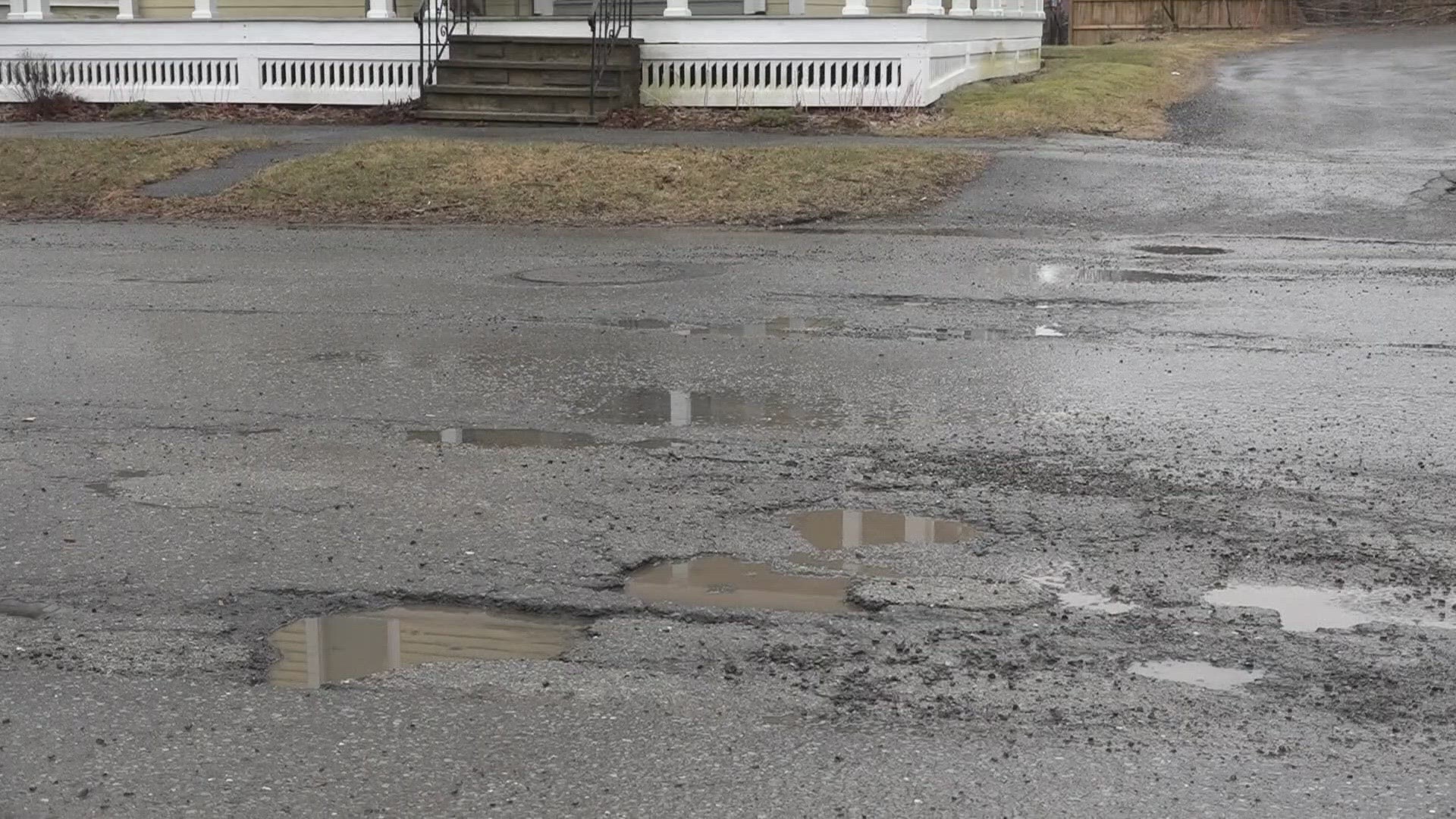BANGOR, Maine — Potholes are a constant concern for Mainers living in Bangor, and although some of the craters in the road are small, others could likely leave you without a car.
"It's awful. I currently don't have a car because of it to be honest," community member Carly Desmond said. "The back tie-rod end is now like hanging on by a thread because of just how bad the potholes are around here. I have like a tiny, low-to-the-ground car."
Desmond's friend Kai Phelps said she has also had to get repairs after potholes caused damage to her vehicle. For a college student like Phelps, having reliable transportation is critical. She said adding car repairs to the cost of tuition only adds stress to her daily life.
"Having constant car expenses that aren't even like necessary or reasonable is just extra stuff on my back that I don't need," Phelps said. "Our cars have to be road-worthy but the roads apparently don't have to be car-worthy—because they're ruining cars."
There are potholes scattered across various parts of the city in areas like Essex Street, Ohio Street, and downtown.
Tony Violette, who used to work for Bangor Public Works in the 1980s, was spending his Friday in a neighborhood on Fern Street, where huge dips in the road could be seen.
Violette said roads need constant maintenance, explaining that when he worked for the city, he could fill a pothole one day and need to repatch it again the next.
"We used to spend days co-patching, what they called it back in the day," Violette said. "You'd just take a one-time dump truck and two guys and go up and down roads and streets until all the holes were patched. I don't see that too much now."
According to Assistant Director of Bangor Public Works Steve Smith, three to four crews patch potholes every day in the winter, but recent weather is setting workers back.
"The enemy of asphalt is water," Smith said.
When it rains, water seeps into voids in the road. As water fills voids, asphalt flexes, and the roads are softened and weakened. When temperatures drop, that water freezes, causing the ground to expand. Streets are also constantly worn down by daily traffic, and the weight of multiple cars passing on the pavement causes it to collapse. Over time, all of these factors cause potholes, Smith explained.
"The wetter the ground is, the more that the road flexes and breaks the top surface," Smith said. "And once the top surface breaks, the water goes into it, and it deteriorates faster."
Public works crews use a cold asphalt mix in the winter as a temporary fix and a hot mix in the summer, which Smith said is more durable. Asphalt plants don't manufacture hot mix in the winter. Smith added that even if hot asphalt mix was available in the winter, it can't dry properly and adhere to the ground in colder temperatures.
"Basically, the only real fix for a pothole is to repave the street and we certainly can't afford to do that," Smith said. "We pave around 30 sections of street per year in the city, and that's to the tune of close to $2 million. And we have over 400 miles of road in the city, so math-wise, taxes would have to be astronomical."
Although Smith said crews are out daily in the winter, Desmond and Phelps both said they don't see workers patching roads as much as they should.
"I actually saw one of my neighbors filling one of them, even though I know that's not super OK," Desmond said. "But he did it, and honestly, it's better than [if] the city would've left it."
Violette said that given the way road repairs are done, he doesn't see much changing over the years.
"You know, the potholes are a maintenance thing," Violette said. "In the state of Maine, you have the frost-thaw situation. So, is that ever going to go away completely? I doubt it unless they come up with a different way to do roads."
Smith said workers will begin patching potholes with hot asphalt mix in May.

